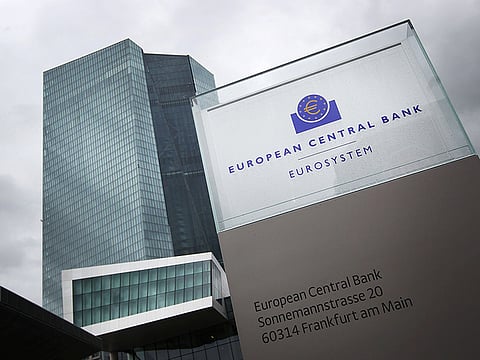Europe’s perilous options for Greece
The current Greek crisis has exposed the fact that the euro is a fundamentally flawed project

As European Union (EU) leaders head into this week’s emergency talks, they face a choice of three hazardous routes out of the Greek crisis. Route one involves making concessions to Greece. Route two involves standing firm and allowing Greece to leave the euro. Route three involves Athens largely accepting the demands of its creditors.
The choice seems stark. But the truth is that all three routes may ultimately lead to the same destination: The destruction of the European single currency. The lengths of the journeys would vary, the scenery along the way would look different, but the end point could still be the same.
Route one: Greece wins. The Syriza government has been operating on the assumption that its European partners will ultimately make big concessions rather than risk a country leave the euro. Those concessions would involve writing off some of Greece’s debts and allowing the country to abandon some reforms, such as further cuts in pensions and higher taxes.
But leaders fear that, if they make concessions such as these, they could end up destroying the Eurozone in order to save it. The governments of countries such as Ireland, Portugal, Spain and Latvia — which have stuck with their austerity programmes — would be instantly undermined. Radical left parties similar to Syriza, such as Podemos in Spain, would gain ground. Meanwhile, voters in Germany, Finland, France and the Netherlands — countries that have already lent billions to Greece — would have to be told that those loans might never be repaid.
In response, anti-EU parties such as the Alternative for Germany and the True Finns would probably gain support. The presence of nationalist and far-left parties at future EU summits would make it truly impossible to reach decisions. At that point, the survival of the EU itself — not just the euro — would come into question.
Route two: Grexit. Rather than head down the dangerous-looking route one, EU leaders have been prepared to contemplate a second route, where Greece defaults on its debts and then probably leaves the euro. European officials have generally sounded confident that Grexit need not cause contagion, whereby financial markets immediately begin speculating on the break-up of the Eurozone, forcing up interest rates and potentially provoking new debt crises in countries such as Italy or Spain.
In the short term, the Eurozone may be able to avoid contagion since the European Central Bank (ECB) has programmes in place that allow it to buy unlimited quantities of Eurozone countries’ bonds, forcing interest rates back down again. In the long run, however, that is unlikely to be a guarantee against debt crises. The ECB’s powers are meant to be temporary - but the precedent that a country can leave the European single currency would be permanent.
In the search for a more permanent fix, after a Grexit, EU policy-makers will push for deeper integration to make the currency union more robust — in particular, through a genuine banking union. But northern European voters will have just seen their money disappear in a Greek default. They are highly unlikely to agree to underwrite the banks of southern Europe.
The political effects of Grexit could also be disastrous for the EU. An embittered and destabilised Greece would be out of the single currency, but still inside the EU — at least, for a while. From that position it could block and disrupt EU policy on a range of issues, from sanctions on Russia to illegal immigration. (Greece is one of the main entry points for illegal migrants from Europe.) Above all, Grexit would raise questions about the future of the whole European project. For decades, the steady expansion of the EU has been associated with the spread of peace and prosperity. The chaotic ejection of a country from the euro, amid poverty and civil strife, will throw that process into reverse.
Route three: Greece folds. Given the dangers of the first two routes, the EU has continued to insist Athens should stick with the programme — paying back its debts and making fundamental reforms that place its economy on a more sustainable footing. Unfortunately, there are no guarantees that even this route would lead the EU to a safe destination.
There are several problems. Greece’s debts look close to unpayable, so there are likely to be further debt crises in years to come. It is also far from clear that the state can be rapidly reformed in ways that will make it function better. The problems of clientelism and lack of competitiveness run too deep.
Most important of all, the Greek crisis has exposed the fact that the euro is a fundamentally flawed project. Historically, currencies that are not ultimately backed by a nation state have collapsed. The EU, nevertheless, thought it had created structures that could make the euro work. This has been shown to be untrue. In response, some European leaders will argue that the Eurozone must now create more state-like structures, such as a banking union or a larger federal budget. But the past five years have demonstrated that this is likely to prove politically impossible.
The bitter truth is that when Europe’s leaders set up the European single currency, they set off into unmapped and dangerous territory. There are no safe routes back.
— Financial Times



